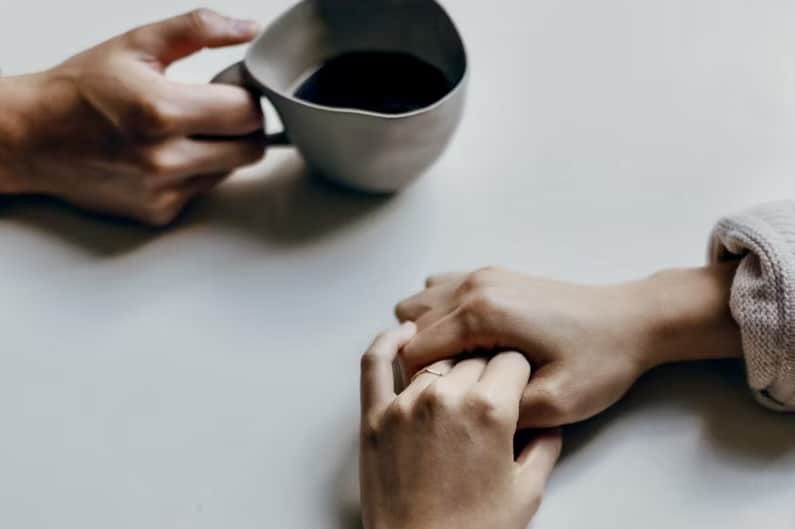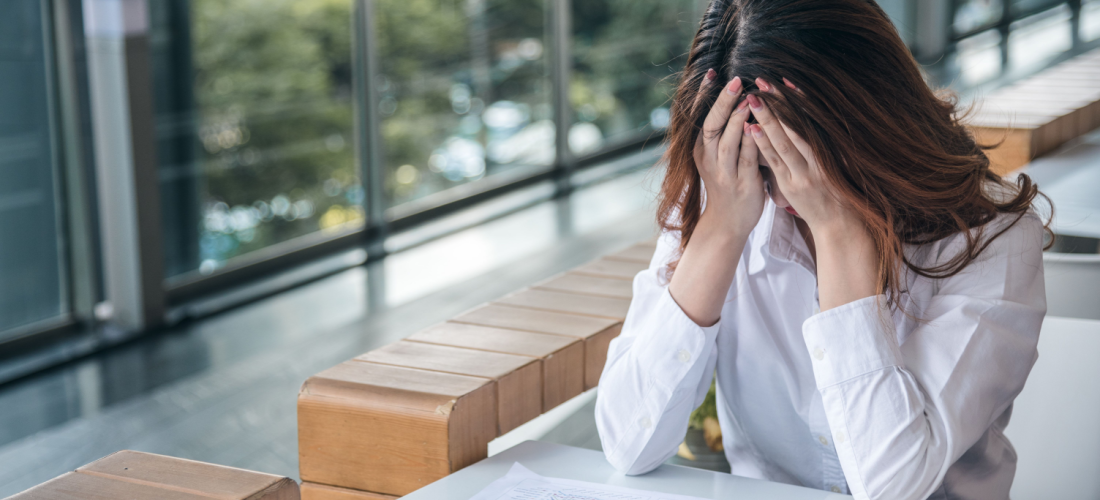Explore proven techniques through counselling for anxiety disorder programs
Explore proven techniques through counselling for anxiety disorder programs
Blog Article
Checking Out Different Methods in Coaching for Anxiousness Condition for Enduring Modification
When taking on anxiousness disorders, it's important to explore a range of counseling strategies. Each approach offers unique understandings and tools to help you manage your signs and symptoms effectively. You might find that combining strategies can yield the very best outcomes. Comprehending the subtleties of these methods is key to promoting long-term modification. What if the best combination could release a new level of psychological well-being for you?
Understanding Stress And Anxiety Disorders: A Brief Review
Stress and anxiety disorders, which impact countless people worldwide, can considerably impact day-to-day live. You could experience frustrating feelings of fear or stress that appear unmanageable. These feelings can result in physical signs like an auto racing heart, sweating, and even lightheadedness. Common kinds of anxiety conditions consist of generalised anxiousness disorder, panic problem, and social stress and anxiety problem. Each has distinct indicators, but they all share a tendency to interrupt your regular and relationships.Understanding the origin of your stress and anxiety is vital. It might originate from genetics, mind chemistry, or life experiences. Identifying your triggers can assist you manage your responses much better. It is necessary to keep in mind that you're not the only one in this struggle. Many individuals face comparable challenges, and seeking help is a solid action towards feeling better. By discovering anxiety disorders, you're currently on the course to understanding and handling your problem better.
Cognitive-Behavioral Treatment: Challenging Adverse Thought Patterns
In Cognitive-Behavioral Treatment, you'll start by determining the negative thought causes that contribute to your anxiety. You'll work on changing them with more positive choices as soon as you acknowledge these ideas. With each other, you'll build effective coping techniques to help handle your anxiety in everyday scenarios.
Determining Adverse Thought Triggers

When you come across moments of distress, acknowledging the details triggers behind your negative ideas can be vital in handling stress and anxiety. Start by focusing on situations that prompt sensations of worry or worry. Is it a congested room, an upcoming deadline, or a conversation with specific people? Write these circumstances in a journal. This will assist you recognize patterns in your reasoning. Likewise, notification physical sensations that accompany your adverse ideas, like an auto racing heart or tightness in your breast. By determining these triggers, you obtain insight right into what's sustaining your stress and anxiety. Comprehending these connections is the primary step in challenging those ideas and ultimately reclaiming control over your psychological responses.
Changing Ideas With Positives
Testing negative thought patterns is an essential action in transforming your attitude and minimizing stress and anxiety. You might typically locate yourself entraped in cycles of self-doubt or tragic thinking. Instead of letting these thoughts determine your feelings, method replacing them with favorable affirmations or reasonable alternatives. For example, when you believe, "I can not handle this," change it to, "I can handle obstacles one step each time." This basic modification can substantially affect your emotion. Consistently identifying and responding to these adverse thoughts helps create a healthier internal dialogue. Bear in mind, it takes time and effort, but continually practicing this technique can bring about long lasting change, equipping you to face anxiety with restored self-confidence and strength.
Building Coping Methods With Each Other
Replacing unfavorable thoughts is only the beginning of managing stress and anxiety efficiently. To produce lasting modification, you require to build coping techniques that equip you. Cognitive-Behavioral Therapy (CBT) assists you recognize and test those purposeless idea patterns. Together, you and your counselor can explore just how these ideas effect your sensations and behaviors.Start by establishing functional strategies, like journaling or mindfulness exercises, that allow you to confront stress and anxiety head-on. When you encounter your concerns progressively, you'll find out to react in a different way.

Mindfulness and Acceptance-Based Approaches: Cultivating Present-Moment Understanding
As you navigate the intricacies of anxiousness, integrating mindfulness and acceptance-based approaches can considerably improve your capability to cultivate present-moment recognition. By concentrating on the present moment, you'll find that you can observe your thoughts and feelings without judgment (Counseling services for anxiety). This practice helps you acknowledge your anxiety without really feeling bewildered by it.Engaging in mindfulness exercises, such as deep breathing, body scans, or assisted meditations, allows you to ground on your own in your existing experience. Acceptance-based approaches encourage you to embrace your emotions as opposed to fight versus them. They shed their power over you.Incorporating these practices into your daily routine can change exactly how you react to stress and anxiety when you approve your sensations. You'll develop strength and discover to browse demanding circumstances with better convenience. Inevitably, cultivating present-moment recognition lays the structure for lasting change, empowering you to lead an extra satisfying life
Direct Exposure Therapy: Facing Anxieties Slowly
Exposure treatment assists you challenge your fears in a steady method, making it less frustrating. You'll find out methods to encounter anxiety-provoking scenarios detailed, while likewise developing coping approaches to handle your responses. This strategy encourages you to take control and reduce anxiety in time.
Steady Direct Exposure Techniques

When facing anxiousness, progressively facing your concerns can be an effective method to restore control. This strategy, called progressive exposure, involves more info slowly exposing yourself to the scenarios or things that activate your anxiousness. Beginning with much less challenging scenarios and progressively function your method as much as more challenging ones. If you're worried of public speaking, you may start by speaking in front of a mirror, after that proceed to sharing ideas with a good friend, and at some point address a tiny group. Each action aids desensitize you to the worry, building your confidence over time. Remember, it's vital to speed on your own and commemorate small success as you relocate through this procedure, strengthening your capacity to manage stress and anxiety effectively.
Structure Coping Methods
Structure reliable coping methods is important for managing anxiousness, especially as you face your worries gradually - Counseling services for anxiety. One effective approach is direct exposure treatment, where you start by facing your fears in a regulated way. Start with less intimidating situations and slowly function your method approximately more tough scenarios. This steady direct exposure assists desensitize you to stress and anxiety sets off, making them less overwhelming.Incorporate relaxation strategies, such as deep breathing or mindfulness, to relax your mind during direct exposure. Track your progression, commemorating small success along the road to improve your confidence. Keep in mind, it's fine to take your time; the goal isn't excellence however consistent enhancement. By constructing these approaches, you'll empower yourself to navigate stress and anxiety and embrace life more fully
Psychodynamic Therapy: Revealing Source of Anxiety
Psychodynamic treatment discovers the subconscious mind, revealing the origin of your anxiety. By examining your thoughts, sensations, and previous experiences, this approach helps you reveal underlying conflicts and unsolved issues that might contribute to your current stress and anxiety. You'll deal with a therapist to examine childhood years experiences, relationships, and psychological patterns that shape your actions today.As you get insight right into these deeper layers of your subconscious, you'll start to acknowledge how previous occasions influence your present actions. This understanding can bring about catharsis, allowing you to process emotions you could have suppressed.Through the therapeutic connection, you can also identify defense reaction that may have established with time, supplying a clearer path to alter. Eventually, psychodynamic therapy furnishes you with the devices to resolve your anxiety at its core, promoting lasting transformation in your psychological health.
Holistic and integrative Strategies: Incorporating Strategies for Greater Efficiency
Incorporating different restorative techniques can boost your journey toward managing anxiousness more successfully. By integrating aspects from cognitive-behavioral therapy, mindfulness practices, and alternative techniques, you can create a tailored method that addresses your distinct needs. For circumstances, you may utilize cognitive-behavioral techniques to challenge adverse thought patterns while integrating mindfulness workouts to ground yourself in today moment.Additionally, exploring alternative practices such as yoga exercise or meditation can promote leisure and reduce stress and anxiety signs and symptoms. This mix enables you to create higher self-awareness and resilience.Experimenting with these diverse methods can aid you find what reverberates most with you. Remember, it has to do with finding a harmony that works, instead of sticking to a single strategy. This integrative strategy not just uses immediate relief yet likewise promotes long-lasting abilities for managing anxiousness, empowering you to redeem control over your life.
The Role of Assistance Solutions: Building Resilience Via Link
While it might appear that handling stress and anxiety is a solitary trip, having a solid support group can play a vital role in your resilience. Surrounding on your own with empathetic good friends, family, or assistance groups develops a risk-free area where you can honestly share your sensations and experiences. You remind on your own that you're not alone in this struggle.These connections provide motivation and can supply sensible coping techniques that have actually worked for others when you connect with others. It's likewise an opportunity to acquire perspective; close friends can aid you see circumstances in a different way, minimizing feelings of isolation.Moreover, emotional assistance promotes a sense of belonging, which can considerably minimize anxiousness symptoms. By leaning on your assistance system, you can develop resilience and deal with obstacles better. Bear in mind, connecting for assistance signifies stamina, and it can make all the difference in your trip towards managing anxiousness.
Often Asked Questions
What Are the Common Signs of Anxiousness Disorders?
You could experience uneasyness, fatigue, problem focusing, impatience, muscular tissue tension, and rest disturbances. Physical signs can include quick heartbeat, sweating, and trembling. Acknowledging these signs early can aid you seek appropriate support and treatment.
The Length Of Time Does Treatment Generally Last for Anxiousness Disorders?
Treatment for stress and anxiety disorders typically lasts anywhere from a couple of weeks to several months. It actually depends upon your individual needs, progress, and the strategies your therapist uses to aid you handle your anxiousness efficiently.
Can Medicine Be Utilized Together With Treatment for Anxiety?
Yes, medicine can definitely be made use of alongside therapy for anxiousness. Integrating both strategies often improves therapy efficiency, aiding you take care of symptoms while checking out underlying issues via therapy (Counseling services for anxiety). Always consult your medical care service provider for personalized suggestions
Exist Self-Help Methods for Managing Anxiety?
Yes, there are several self-help approaches for handling anxiousness. You can exercise mindfulness, involve in routine workout, preserve a balanced diet plan, develop a routine, and utilize deep breathing techniques to help in reducing anxiety symptoms properly.
How Do I Know if I Need Specialist Aid for Anxiousness?

Report this page